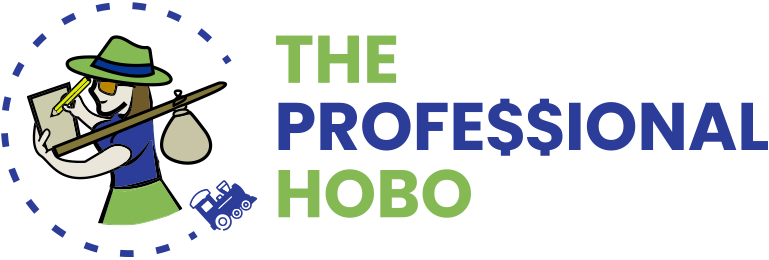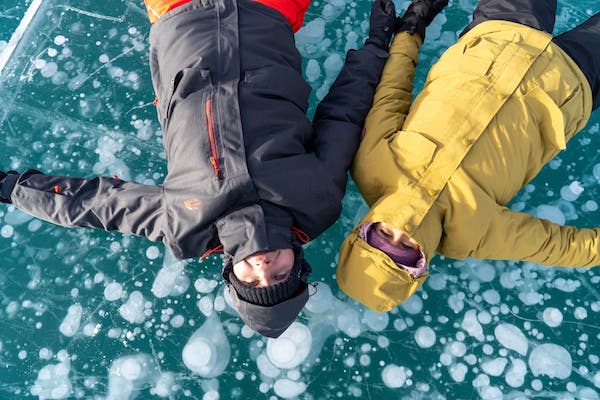Matthew Bailey is a travel writer, vlogger, and photographer who fell in love with world travel back in 2009. Since 2017, he and his wife Karla have decided to niche down to their home country despite their love for world travel. Through their site Must Do Canada, they help both Canadians and visitors by sharing the best things to do in Canada, coast to coast to coast, through video, photography, travel guides, and social media. They wear many hats in their varied careers, but lately the videography side of things has taken off. In this financial case study (as written by Matthew), learn more about the evolution of their career and travel lifestyle here!
You may recognize Matt and Karla Bailey from an earlier article and video interview, which you can check out here!
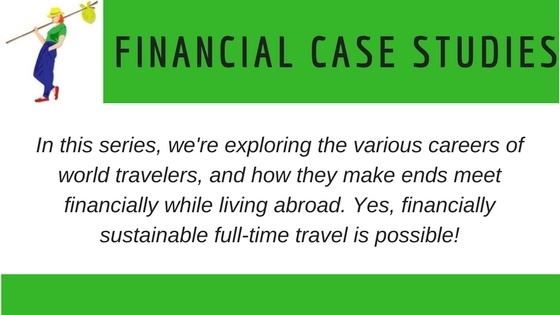
How long have you been living/working on the road, and where have you traveled to?
I started backpacking in 2009, exploring New Zealand and Australia for 6 months. It was a life-changing bucket list trip that included bungy jumping, scuba diving, skydiving, hang-gliding and more. I went from a relatively quiet life to being super adventurous.
But before that, I met my now wife Karla during a semester at university in Canada. Karla is from Mexico and was here for an exchange semester. She moved to Canada in 2011 and in 2012, we went to Southeast Asia for a year, visiting almost every country and living in Malaysia for four months while I also did a semester abroad.
In total, we’ve now visited 42 countries on 6 continents, including Canada, the USA, Mexico, Costa Rica, Colombia, Ecuador, Peru, Bolivia, Greenland, the Netherlands, England, Germany, Czech republic, Italy, Turkey, Jordan, Egypt, Israel, Nepal, India, Dubai, Ethiopia, Uganda, Tanzania, China, Japan, South Korea, Laos, Thailand, Myanmar, Singapore, Malaysia, Cambodia, Indonesia, Palau, and Cuba.
Much of our multi-month world travel was between 2012 and 2017 but now we spend a lot of time exploring Canada.
Please describe what you do for income.
Nowadays, a big portion of income comes from tourism companies and DMO’s who pay us to create videos and other content such as articles, photography, and drone footage. We also have sponsors for some videos and we make some money from Youtube ads and ads on our website. We’re trying to develop some other income streams as well.
We also occasionally take on clients for social media management, copywriting, and so forth.
How many hours per week do you work on average?
Right now, we’re working a lot because we’re really trying to grow the business and the traffic. Videos are also very time-consuming. When we’re home, I think 40-50 hours or more is common, but when we’re on the road shooting videos, we work every day. However, our video shoots combine fun since we’re out exploring and doing fun things like ice climbing. I’d say 40-50 hours on average with some weeks going over that.
How much money do you make?
Our income still varies a lot, which is why we’re focusing on both growth and new income streams that don’t require us to be away from home. Some months, we may only bring in $1,500 and other months as much as $15,000 or more. Summer months tend to be busier, but COVID has caused many projects to be cancelled. This is another reason why we’re trying to build more income streams that don’t require physical travel. Right now, I’d say anywhere from 50-80% of our income is tied to being on the road and creating content.
Do you make enough money to support your lifestyle?
As of 2019, we now make enough to support our lifestyle. However, 2020 and 2021 have been tricky because of all the closures with tourism. I think if that did not happen, we’d be on track but that had caused many hurdles and big losses in income. There have been times in the last few years where we also manage social media for clients or even go as far as finding part-time sales jobs to get by during poor-performing months.
In terms of savings, we’ve made it a priority for a few years now to automatically put $300 (each) aside for a TFSA account invested in e-index funds. We’d love to increase this to at least $500, which should be enough to live on when we “retire” should nothing else go to plan. I think this is one of the most important things anyone can do and wish I had started at 18.
Nora’s Note: SO true! Here’s how compound growth works…it’s really astounding.
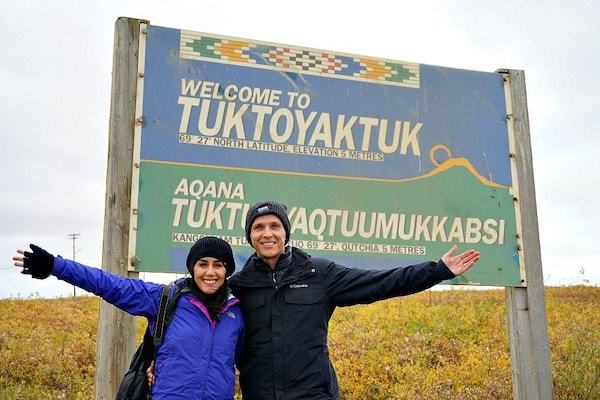
What do you like most about your career and lifestyle?
There are lots of things I love about it. First, I’ve always had it in me to be an entrepreneur. I don’t consider myself a major success like the ones you read about, but at the same time, I have turned many of my dreams into reality and have found a way to combine most of my interests into a business that I designed myself. For example, back in 2004 when I applied for school, I applied for film/video, journalism, and business. I got accepted into business only but now I do all three!
It’s also pretty incredible to get paid to travel and do amazing things that most people pay for, but it’s equally exciting to know that all of it was created from an idea and a lot of hard work and risk.
Another big benefit to me is being able to dream something up and turn it into a reality. For example, much of our recent success is tied to an idea I had back in late 2016. I wanted to do something big for Canada’s 150th birthday in 2017 and came up with the idea to do a 150-day Canada road trip documentary. At the time, we had never done video, so we found a videographer, created a pilot episode, reached out to hundreds of companies, found a major sponsor, started to plan this massive undertaking, and then actually made it happen. That’s literally why we have a Youtube channel today and why both Karla and I have turned video production into our core business.
What are some of the challenges you have with this career and lifestyle?
The downside of what we do is that the income is still unpredictable. We still find ourselves stressed many times throughout the year as we figure out how to bring in income. Even with our projects, we don’t often know about them more than a month in advance. So, in some ways, we don’t know what we’ll make next month, and that can be hard to deal with mentally. It can also be hard to do things like buy a house unless the income is very stable for a few years.
In addition, we’re in a very competitive space. Everyone seems to have a blog and a Youtube channel these days and we’re all essentially competing for the same eyeballs. Also, there are many “influencers” out there who do things for free or for very cheap, which really waters down the creative field. I think the quality certainly sets those apart, but there’s no doubt that this type of thing starts to undercut what the true value is.
What is your vision for the future of your lifestyle on the road?
We’re not really nomads and as of 2020, we moved into an apartment in Calgary, Alberta. Because our business is based in Canada, it makes sense for us to have a home base here and a place with a nice setup to edit videos and stay focused. However, we tend to travel 3-4 months every year for video projects, and we always try to spend at least one or two months abroad. So, we still travel a lot!
Much of our job could be done on the road, although video editing is tricky. However, we love being around family and feeling some stability so we like the idea of a home base right now. We also want to have kids, so that’s perhaps the most important thing that keeps us from being full-time nomads.
Our vision is to grow a stable income stream (or streams) that are not tied to being on the road but continuing to do our core business at the same time. Ideally, we’d always love to travel 4-6 months of the year, and spend the rest with family, focusing on the business, and getting deeper into other hobbies.
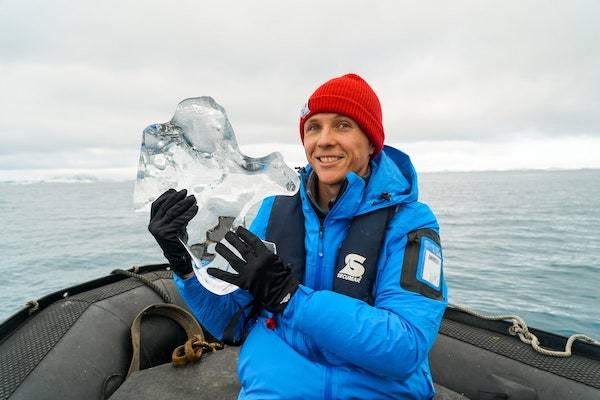
Any advice for the aspiring traveller about living and working on the road and managing finances?
I think it sounds MUCH easier than it looks. If your main goal is to just travel or be nomadic, I think it’s easier to either be a freelancer (such as managing social media, marketing, etc) for clients and/or being a remote employee. Creating a blog or a Youtube channel or a podcast is probably one of the hardest ways to make money, right up there with acting and singing. It can be done, but again, you’re competing with millions and most of the money is made by the top 1%. Plus, you won’t make any for years as you need traffic, subscribers, and followers to start pulling in $. So, if I were to start out again, I would spend a good amount of time going over the pros and cons and income streams of various jobs and deciding what to pursue. I’d also keep expenses low so there’s not a lot of stress in the beginning.
I would niche as much as possible. Combine two niches if you can. It’s much easier to stand out the further you get into a niche. I met someone once who just loved mountain biking. So, he went on Instagram (and maybe other channels) and just became an influencer for mountain biking. After building up a base of followers, he landed a couple of sponsors that were enough to make a living. These sponsors were in the mountain biking space and so his audience was perfect. Niche!
Then, for finances, the biggest tip I have is to start a Tax-Free Savings Account (this is a Canadian investment), invest in e-index funds as per the Couch Potato Strategy, and start an automatic monthly investment into that plan of $100 or more. If you can start at 18, do it. If you’re 30, do it. I’m sure you’ve heard of compound interest before, so the earlier you start the better, but there’s also no better day to start than today!
Another thing that I personally wish I had done in the beginning was to focus more on travel and less on the business. What I mean by that is that if you’re not sure if travelling long-term is for you, I would just save up and travel first. Travel is such a special life experience and if you end up spending most of the time worrying about building an online business only to realize you’re running out of money and having to go home, you’re going to regret missing out on those true travel experiences. So, either take the first long-term trip just to enjoy or make sure you have the skills and money upfront to really make a go of it while on the road. Meeting new people, dealing with WiFi, and just the constant influx of new experiences can make it very hard to focus. If you really want to focus on business and not travel, you’ll be better staying in a location for a few months and getting grounded.
Is there anything else you’d like to add?
First off, just get started. Look into all the ways to make money remotely. Join forums or Facebook groups and speak to others doing what you want to do. Don’t be afraid to reach out and ask a question. You would be incredibly surprised as to how many bloggers and entrepreneurs will actually respond.
If possible, I also recommend doing this on the side at first. It takes time to build up an income and there’s been far too much advice out there to just up and quit. If you can, awesome! But not everyone can and you shouldn’t feel pressured to do something so drastic.
See also: Tips for Transitioning to Full-Time Blogging, and Before You Quit Your Day Job…
But still, just like I tell people who tell me they want to travel, you need to start today. Start saving. Start planning. Make a goal and progress towards it every day. Too many people wait and wait and wait only to realize one day that there will never be a perfect time.
